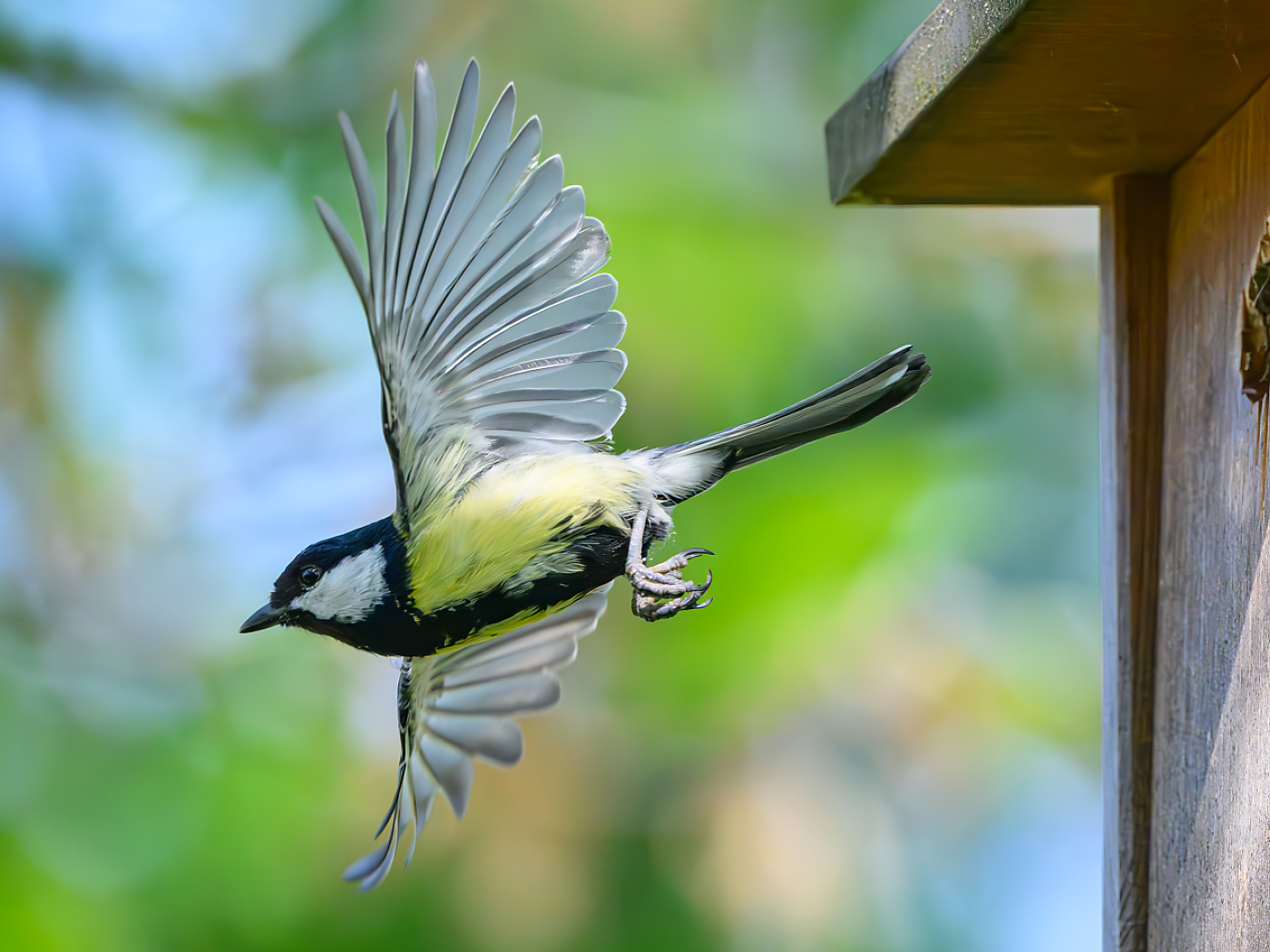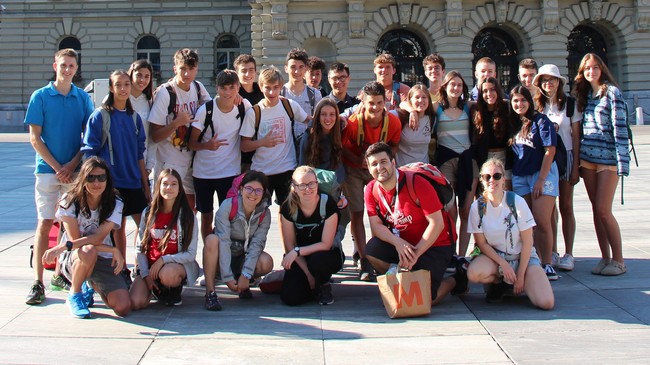
Too much light at night disturbs great tits when breeding

Great tits have fewer young in nesting boxes in the city than in forests. The reason for this is light pollution, according to a Swiss study. Great tits are more restless at night in the city and warm their eggs less.
+Get the most important news from Switzerland in your inbox
In order to investigate the influence of humans on breeding birds, a study involving the Sempach Ornithological Institute compared the hatching rate of great tits nesting in the forest with those in the city. According to a press release issued by the ornithological institute on Tuesday, the results are clear: more young hatch when the great tits constantly warm their eggs during the night.
However, they only do this in the forest and much less in urban nesting boxes. In the city, they are all the more restless the more brightly lit the locations of their nests are. The great tits therefore warm their eggs less consistently.
The fact that even common and well-adapted birds such as the great tit have problems with nocturnal light is an alarm signal for the ornithological station. It is therefore important to preserve dark places for nocturnal and less adaptable animals such as owls and bats.
+ Looking at the skies in a new light
Light pollution also dulls the birds’ sense of direction, especially on nights with fog and dense clouds, the press release said. When they return from their wintering grounds, they orientate themselves by the stars, among other things, which is why they depend on a starry sky on their journey.
Avoiding unnecessary light at night is therefore a top priority for the bird observatory. The environmental and nature conservation organisation therefore recommends so-called “full cut-off lights”, which do not emit any light above the horizontal and thus reduce the light intensity.
Translated from German by DeepL/ts
This news story has been written and carefully fact-checked by an external editorial team. At SWI swissinfo.ch we select the most relevant news for an international audience and use automatic translation tools such as DeepL to translate it into English. Providing you with automatically translated news gives us the time to write more in-depth articles.
If you want to know more about how we work, have a look here, if you want to learn more about how we use technology, click here, and if you have feedback on this news story please write to english@swissinfo.ch.

In compliance with the JTI standards
More: SWI swissinfo.ch certified by the Journalism Trust Initiative
















![The four-metre-long painting "Sonntag der Bergbauern" [Sunday of the Mountain Farmers, 1923-24/26] had to be removed by a crane from the German Chancellery in Berlin for the exhibition in Bern.](https://www.swissinfo.ch/content/wp-content/uploads/sites/13/2025/12/01_Pressebild_KirchnerxKirchner.jpg?ver=cb688ed5)














You can find an overview of ongoing debates with our journalists here . Please join us!
If you want to start a conversation about a topic raised in this article or want to report factual errors, email us at english@swissinfo.ch.